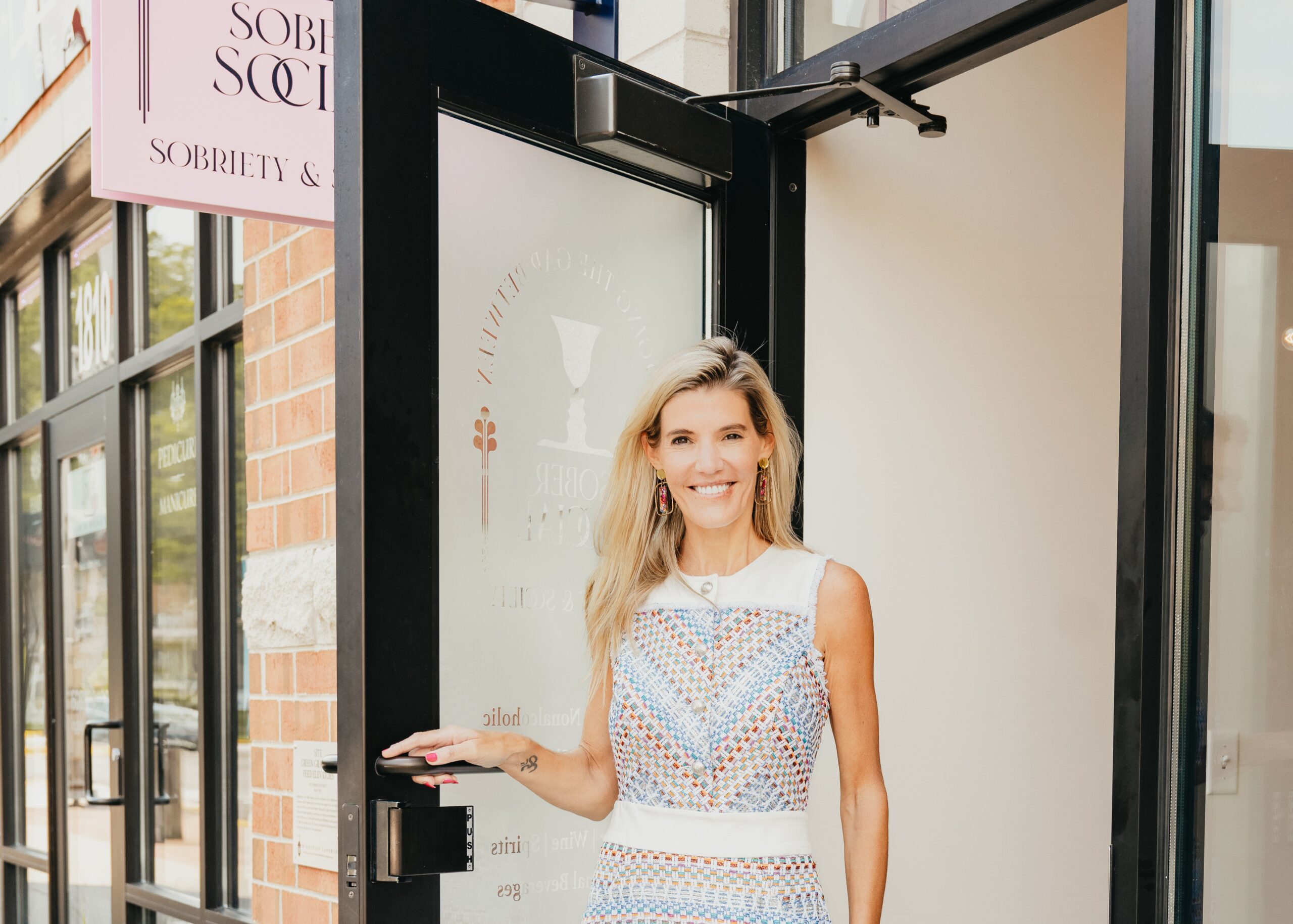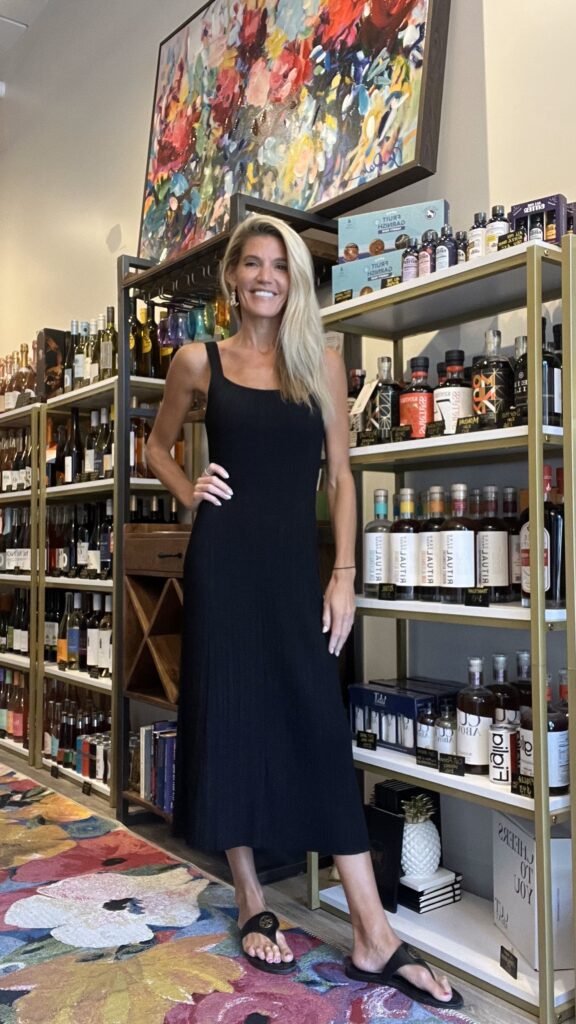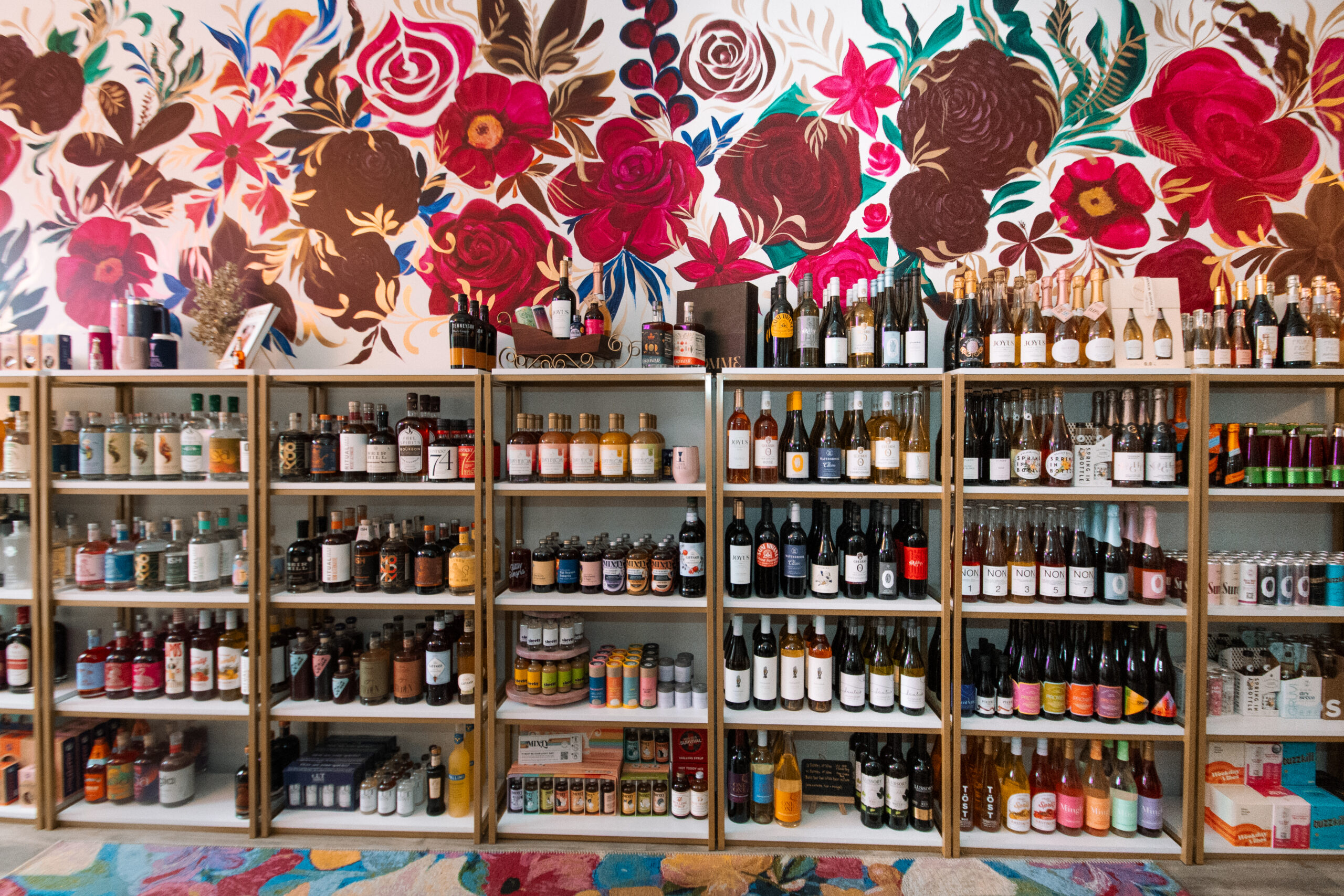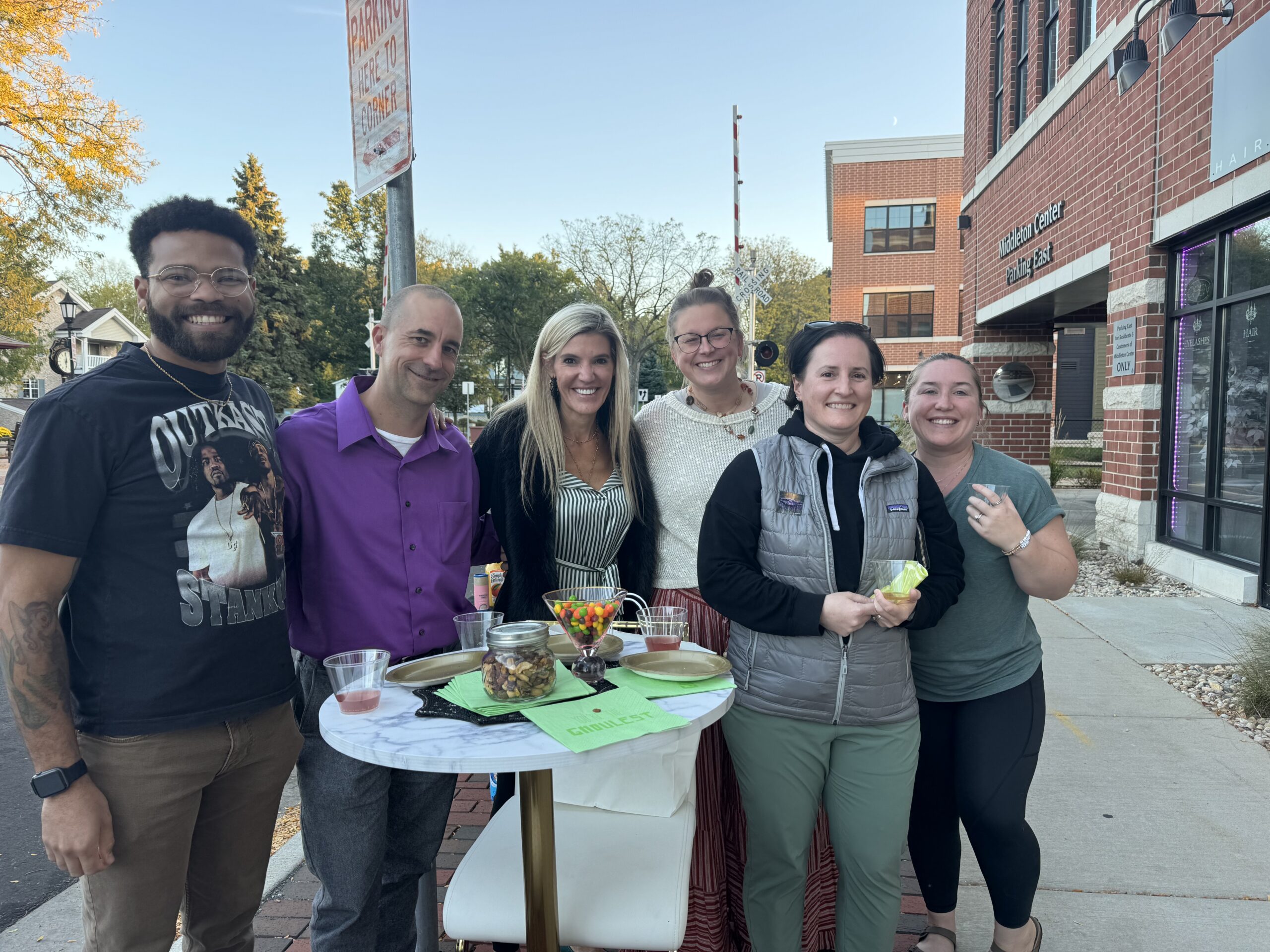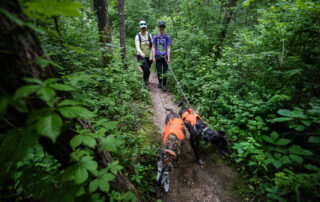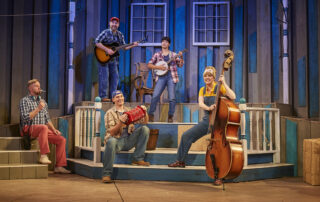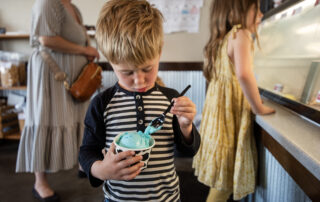There’s a shop in Middleton that has rows of bottles, mixes and cans — but none of them contain alcohol. It’s called Sober Social, Wisconsin’s first and only non-alcoholic bottle shop. Producer Morgan D. Stewart caught up with its owner, Kristi Tanner, about why she opened the store and their respective recovery journeys.
==
I met Kristi Tanner, the owner of Wisconsin’s first and only non-alcoholic bottle shop Sober Social, in the way I meet a lot of people as an outgoing extrovert — as a friend of a friend.
But first, a little bit about me. Over coffee with a former coworker this summer, I decided to take a risk and do what many folks who stop drinking alcohol dread. I disclosed to her that I no longer partake.
My reasons for giving up drinking are many, and so I usually cherry pick the ones I feel are both most true at the time and most relevant to my audience. It’s always a risk to share that I don’t drink anymore. Most of those reasons are fear-based, yet they’re valid fears. There is still a lot of stigma around addiction. Some people think that those who struggle with addictive behaviors do so because they lack the will to change. Or worse, that if someone admits they have addiction problems they’re labeled as irresponsible, lazy or undeserving of some of the benefits enjoyed by the rest of functional society.
Most assume that I quit drinking because I have a problem with alcohol (I did) or that I’m pregnant (I’m not) or want to become pregnant (I do, but that’s not necessarily why I quit). Whatever the reason, it’s always a big relief to share my experience with someone and, instead of bombarding me with inappropriate questions or unintentionally judging me, they remind me that I’m not alone.
Not only did my friend share some of the changes she was making about her own drinking behavior, she also recommended that I check out a new place in Middleton called Sober Social and follow the owner on social media. Not only did I feel supported, but I was stunned. There is a retail store less than 5 miles from my home with an owner who designed a sober place for social folks to be open about their decision to abstain from alcohol?!
I was insatiably curious: What brave space did Tanner dare create smack dab in the middle of one of the largest and most (in)famous drinking cultures in the United States? Is it a bar? Is it a social club?
To find out, I reached out to Tanner and learned more about her vision firsthand.
“I was not one of those ‘high-bottom people,'” Tanner said.
High-bottom people are called that because they’re holding down jobs and supporting their families, but they realize they’re headed for disaster. They give up their drug of choice before it impacts their lives.
“I had a real drinking problem, and I didn’t want to get sober. When that happened, I had four children under the age of 5 and a half — no twins — and I was about 60 days separated from my husband,” she said.
Alcohol did this to Tanner, like it did to me.
Even though Tanner knew she had hit her lowest point, she was scared to quit drinking.
“I thought it was going to leave me alone, isolated, left out. I’m not going to have any friends. I’m not going to have anywhere to go. I’m gonna have nothing to do,” she said.
The social aspects that come along with drinking, like going to a bar with friends or celebrating at an event, those things weigh heavily on people. For them, sobriety means no more socializing.
Tanner’s vision for her future was clear.
“I wanted it to be something that might be attractive, that you might want to try, that would make you feel good,” she said. “How can we socialize and let it be something that everyone can experience and not just people who drink?”
The Sober Social shop, with its bright pink and floral decor, is a comfort to Tanner when she finds herself spending many nights there doing a lot of the behind-the-scenes work solo.
“I live here,” Tanner laughed. “So, thank God it’s cute!”
Outside the shop, another first-time visitor, Dana Bash, and I gave each other our experiences.
“They have a lot of variety and the ability to taste things, which was really great because I’ve looked at things in stores and they’re expensive. I don’t want to invest in them without tasting,” Bash said.
We talked briefly about the U.S. Surgeon General’s recommendation in January 2025 that the FDA warn consumers about cancer risks associated with alcohol by labeling bottles, like they do with cigarettes. Bash said cutting back on alcohol seems to be something that’s “gaining popularity.”
“I hope that with that warning from the surgeon general, is something that people begin to take it seriously,” Bash said.
Pair that with another 2023 study, in which the U.S. surgeon general reported that there is a loneliness epidemic in this country, with unprecedented levels of social isolation.
Now, if drinking is one of the main ways that people socialize, especially in Wisconsin, aren’t we going to be more lonely without it?
Tanner recommends one way for existing bartenders and party hosts to help non-drinkers feel like they belong: Offer a variety of elevated beverages that don’t have alcohol in them. Not all teetotalers want sugary sodas or bitter teas.
“My personal opinion now is if you do not have a non-alcoholic option at your bar, you don’t have a full bar service,” Tanner said. “You should have an N.A. cocktail and you should have an N.A. wine or an N.A. beer.”
Having options can help people avoid that dreaded question.
“The question was, ‘Why aren’t you drinking?’ And that’s not the question I want to be answering,” Tanner said. “I want to be talking to my friends about whatever we’re talking about, whatever everyone else is dealing with. When I didn’t have something, it always brought it back to what made me different than other people. And I’m like, ‘How can I solve this problem?'”
Tanner is surprised by the way her life is unfolding. Inspired by her success, I decided I was ready to take the leap again and share some of my struggles on the path toward sobriety. This time, I decided to open up to more than just a few loved ones. I felt empowered to share my story with “Wisconsin Life,” with you, too.
Now I find myself sober, social and excited about what the future holds. Like Tanner, I didn’t think I’d find myself here. Like Tanner, I recently started a small business to help myself and others. And like Tanner, I’m on a mission to transform existing cultures so that they are more inclusive and help destigmatize intentional sobriety. Between the two of us, we’ll make sure no one ever has to drink (or abstain from drinking) alone.
Editor’s note: The full conversation between Kristi Tanner and Morgan D. Stewart can be found on the uHuman: a multimedia miracle website and podcast, which is exploring creative tools used to help people in recovery. Audio engineering support for this story was provided by Luke Tschosik, a music producer living in Madison, Wisconsin.
